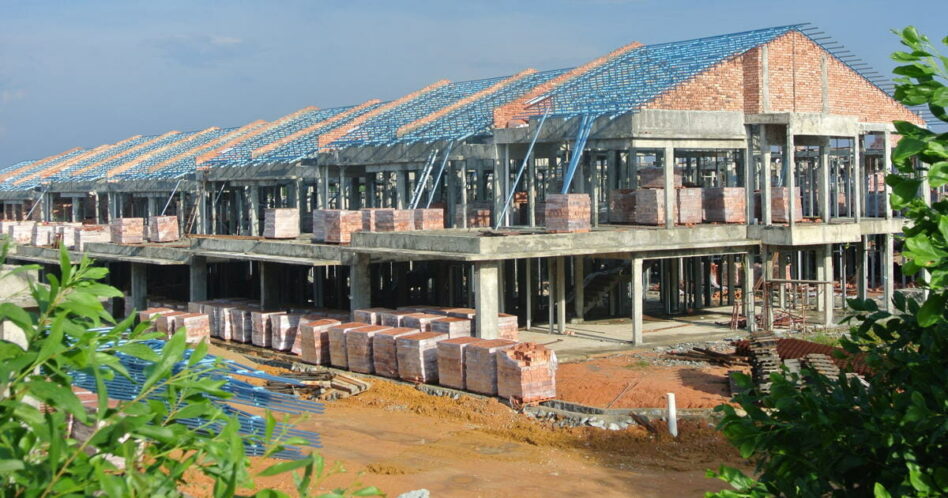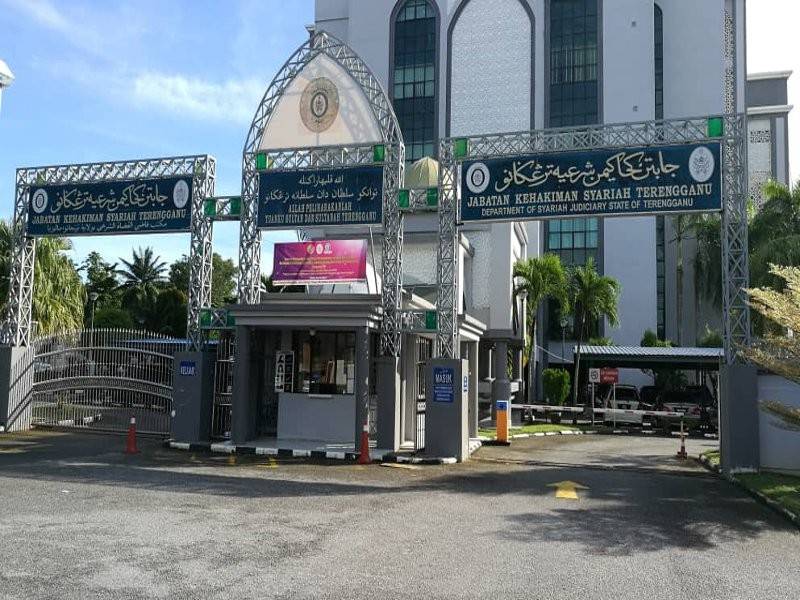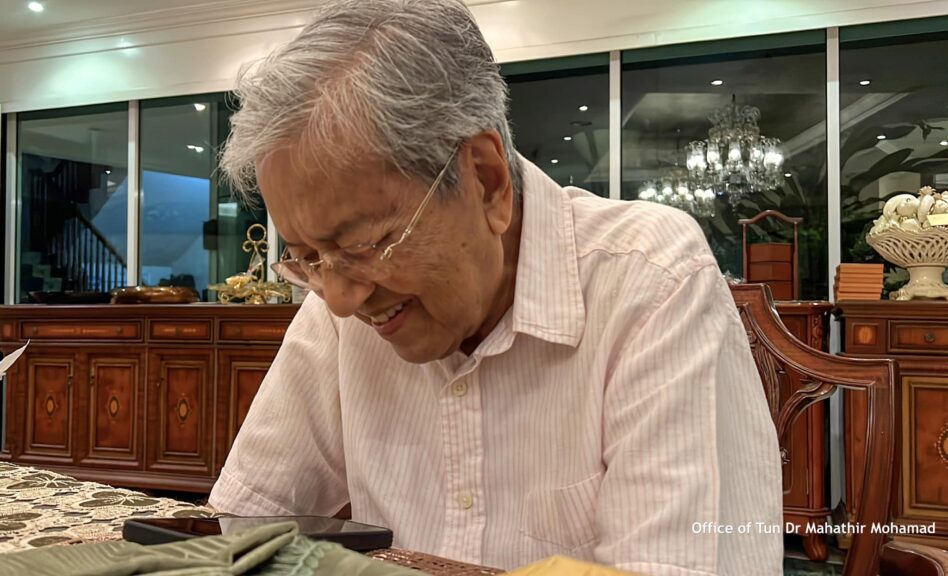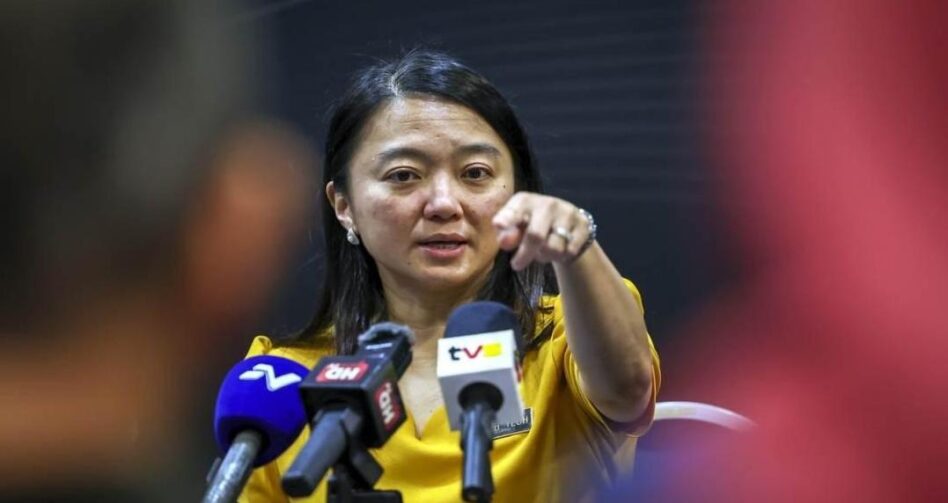WHEN Malayan United Industries Bhd (MUI), led by executive chairman Khoo Kay Peng sold its entire 69.12% stake in Pan Malaysia Holdings Bhd (PM Holdings) to Yu Kuan Chon in Dec 2014, it was expected to be used to reduce the group’s level of bank borrowings.
The proposed sale of RM642.7 mil shares of the 69.12% stake was for RM77.12 mil or 12 sen per share, which is above the group’s net assets per share of 6.26 sen.
According to a FocusM article in its Jan 17-23, 2015 issue, MUI noted that the proposed disposal was in line with its business strategy of divesting non-core assets and reduce its borrowings to RM890 mil from RM970 mil (as of Dec 31, 2013), getting its gearing ratio to 1.09 from 1.25.
The group slipped into the red with a net loss of RM3.08 mil for the nine months ended Sept 30, 2014 from a net profit of RM17.3 mil the previous year, while its revenue declined to RM441.2 mil from RM470.2 mil.
But when Khoo Kay Peng went into retirement, his second eldest son Andrew Khoo Boo Yeow took over the role from his father in December 2018. At that time, MUI was operating five industries such as retail, hotels, food, property and financial services.
These include Metrojaya Bhd (owned 98.21%), London-listed Laura Ashley Holdings Plc. (owned 35.17%), Corus Hotels and Laura hotels as well as PCB Asset Management Sdn Bhd, among others.
At the time of the appointment, MUI’s net loss for the financial year ended June 30, 2018 (FY18) was at RM56.06 mil. Previously the CEO of MUI, Andrew announced his three-year turnaround plan for the group.
“Under the plan, there are three strategic thrusts, with the first being corporate and capital restructuring. This is already under way, with another two years to go,” he said in an article by The Edge on Dec 17, 2018.
“We want to rationalise our assets, (which) means that we are more focused in what we want to do, and the second part to that is we want to deleverage. We want to pare down our borrowings and that will make us stronger,” he said, adding that the third thrust will be the group’s business transformation.
“I want to transform the business to become more lifestyle-driven. We are doing that with our existing brands,” he stated in the article. “My business approach is being more objective and looking at what’s best for the group. If it makes sense to sell, we will.”
Keeping to his approach, MUI planned to develop an integrated transit-oriented development (TOD) in Bandar Springhill in Seremban with a gross development value (GDV) of RM440 mil.
From the TOD, the company expects between 10% to 15% capital appreciation, supported by the East Coast Rail Link’s (ECRL) two stations in Negeri Sembilan.
Aside from Bandar Springhills, MUI was also planning for residential developments in Penang, Kota Kinabalu and Sabah with an estimated GDV of over RM300 mil combined.
Apart from plans for the property segment, MUI also invested over RM10 mil into The Benjamin Barker Group, taking up the minority state in the company, as reported by New Straits Times on Sept 3, 2019.
And from The Edge’s cover story, Andrew admitted that the group had its fingers in different pies and it was going through a transformation journey that requires careful planning.
“The company is very diverse as we have many businesses, so I’ve been getting my hands dirty by getting involved with all facets of the business,” he said in the story dated Sept 30, 2019.
“We’re in the middle of a transformation journey. (We want to) put a plan in place with a very clear vision, which is to take our brands and assets and reposition them in a way that makes them more meaningful for today’s marketplace,” he explained.
The story also revealed that he planned to put more focus on the property segment of the business, going forward.
However, it seemed that the Corus Hotel Hyde Park in UK and MUI’s asset in Kompleks Bukit Jambul, Penang were not in the equation as the group put the hotel up for sale in August 2019, followed by the retail asset, which The Edge reported ‘may fetch as much as RM50 mil’, which was speculated to be used as debt repayment.
The article reported that as of June 30 last year, MUI’s borrowings amounted to RM822.2 mil, with bank balances and cash stood at RM241.5 mil.
The streak continues when MUI was announced to sell a 4.1-hectre plot of land in Scotland for £7.2 mil (approx. RM38.8 mil at the time).
The company stated that about 50% of the proceeds to be used in repaying the vendor’s bank borrowings, while the balance will be utilised as working capital.
According to MUI, it was all part of its (apparently years-long) strategy of divesting non-core assets, as well as its continuing efforts to reduce its bank borrowings.
Then, earlier this year, the group might have dug a deeper hole as its subsidiary Plaza On Hyde Park Ltd was reported to secure a RM539 mil loan from United Overseas Bank Ltd in London.
“In an exchange filing, the company said it has renewed its term-loan facility of £79.625 mil (RM429.42 mil) and accepted a new term-loan facility of £20.375 mil (RM109.882 mil),” stated a New Straits Times article on March 4.
It added that the loan facilities would be used to refinance its existing term-loan facility and finance the refurbishment and renovation of Corus Hotel Hyde Park, despite its decision to sell it.
As reported in another New Straits Times article, ‘it is unclear why MUI is spending RM109.9 mil to upgrade Corus Hotel Hyde Park when it planned to sell the property’.
However, the same article also said that the sale of the hotel could result in a gain on disposal of more than RM800 mil for the group.
More money is being siphoned out of the group’s wallet when its shares fell 19.05% on March 18, 2020 after its UK-listed retailer Laura Ashley Holdings Plc filed for administration, since the pandemic had an immediate and significant impact on its trading.
“The company’s cash flow forecasts had been unable to secure third-party debt funding and will not be in a position to draw down additional funds from third-party lenders in a timely manner sufficient to support working capital requirements,” the retailer said in an article by The Edge.
In addition, the article pointed out that MUI Asia Ltd, which has a 35.17% stake in Laura Ashley, confirmed that it was unable to provide financial support in the required timeframe.
This may have played in causing MUI to suffer a net loss to RM138.47 mil in the third quarter ended Mar 31, 2020 (3Q20), as reported by The Edge on June 19, 2020.
“According to MUI, the Movement Control Order (MCO), which was implemented on March 18, has further affected the group’s financial performance,” the article noted.
It was also highlighted that the group’s retail division suffered losses of RM111.8 mil from the derecognition of Laura Ashley Holdings Plc.
According to the article, the group is placing its focus on recovering through various strategies and plans, including reconfiguring business models, moving to e-commerce platforms and seeking new collaborations for revenue and earnings growth, all to improve the performance of its retailing business.
In its 4Q20 financial results, MUI is still facing a decline in revenue to RM32.2 mil from the RM90.1 mil in its previous year but a recovering net loss of -RM32 mil from the previous RM82.1 mil in 4Q19.
As of 4.44pm today, MUI Bhd’s share price is at a standstill of 12 sen, with a market capitalisation of RM337.2 mil. – Sept 28, 2020










